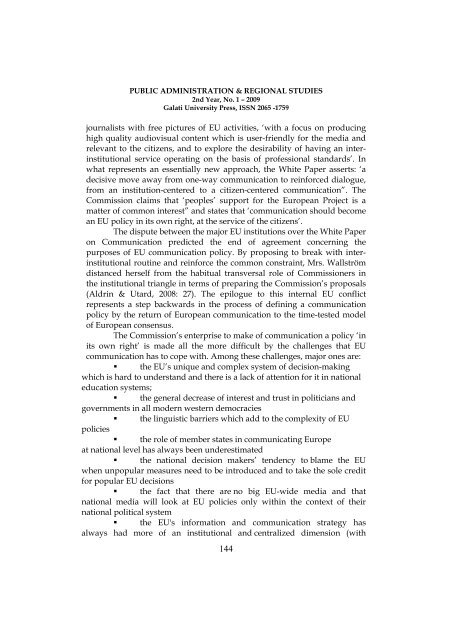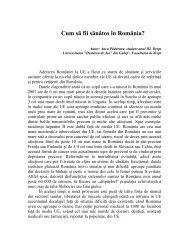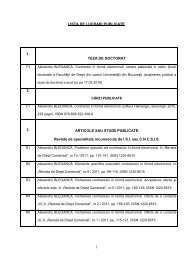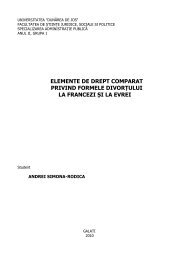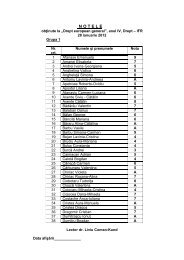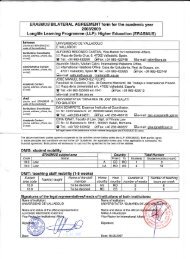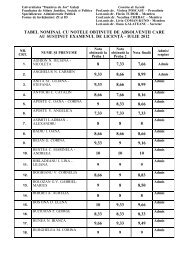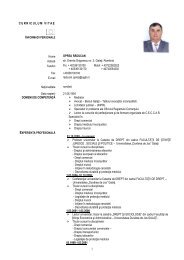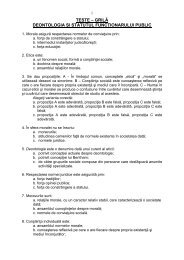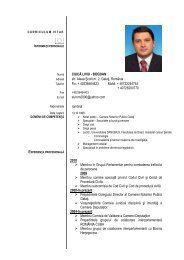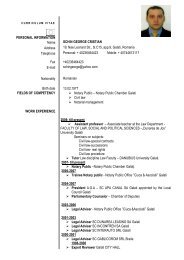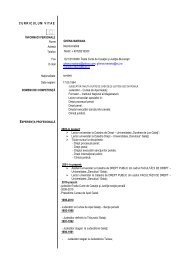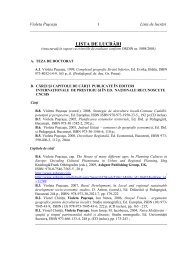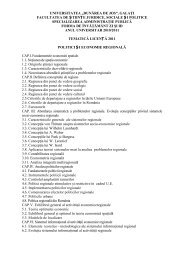regional studies public administration - Facultatea de Drept ...
regional studies public administration - Facultatea de Drept ...
regional studies public administration - Facultatea de Drept ...
You also want an ePaper? Increase the reach of your titles
YUMPU automatically turns print PDFs into web optimized ePapers that Google loves.
PUBLIC ADMINISTRATION & REGIONAL STUDIES<br />
2nd Year, No. 1 – 2009<br />
Galati University Press, ISSN 2065 -1759<br />
journalists with free pictures of EU activities, ‘with a focus on producing<br />
high quality audiovisual content which is user-friendly for the media and<br />
relevant to the citizens, and to explore the <strong>de</strong>sirability of having an interinstitutional<br />
service operating on the basis of professional standards’. In<br />
what represents an essentially new approach, the White Paper asserts: ‘a<br />
<strong>de</strong>cisive move away from one-way communication to reinforced dialogue,<br />
from an institution-centered to a citizen-centered communication”. The<br />
Commission claims that ‘peoples’ support for the European Project is a<br />
matter of common interest” and states that ‘communication should become<br />
an EU policy in its own right, at the service of the citizens’.<br />
The dispute between the major EU institutions over the White Paper<br />
on Communication predicted the end of agreement concerning the<br />
purposes of EU communication policy. By proposing to break with interinstitutional<br />
routine and reinforce the common constraint, Mrs. Wallström<br />
distanced herself from the habitual transversal role of Commissioners in<br />
the institutional triangle in terms of preparing the Commission’s proposals<br />
(Aldrin & Utard, 2008: 27). The epilogue to this internal EU conflict<br />
represents a step backwards in the process of <strong>de</strong>fining a communication<br />
policy by the return of European communication to the time-tested mo<strong>de</strong>l<br />
of European consensus.<br />
The Commission’s enterprise to make of communication a policy ‘in<br />
its own right’ is ma<strong>de</strong> all the more difficult by the challenges that EU<br />
communication has to cope with. Among these challenges, major ones are:<br />
• the EU’s unique and complex system of <strong>de</strong>cision-making<br />
which is hard to un<strong>de</strong>rstand and there is a lack of attention for it in national<br />
education systems;<br />
• the general <strong>de</strong>crease of interest and trust in politicians and<br />
governments in all mo<strong>de</strong>rn western <strong>de</strong>mocracies<br />
• the linguistic barriers which add to the complexity of EU<br />
policies<br />
• the role of member states in communicating Europe<br />
at national level has always been un<strong>de</strong>restimated<br />
• the national <strong>de</strong>cision makers’ ten<strong>de</strong>ncy to blame the EU<br />
when unpopular measures need to be introduced and to take the sole credit<br />
for popular EU <strong>de</strong>cisions<br />
• the fact that there are no big EU-wi<strong>de</strong> media and that<br />
national media will look at EU policies only within the context of their<br />
national political system<br />
• the EU's information and communication strategy has<br />
always had more of an institutional and centralized dimension (with<br />
144


